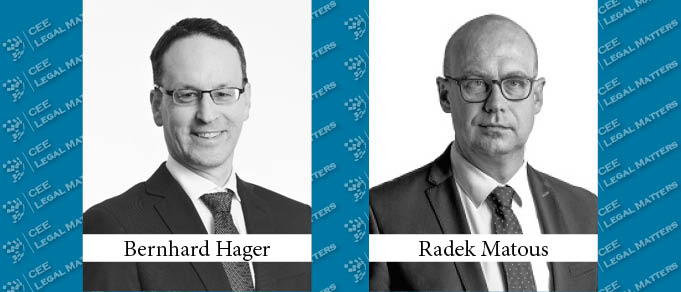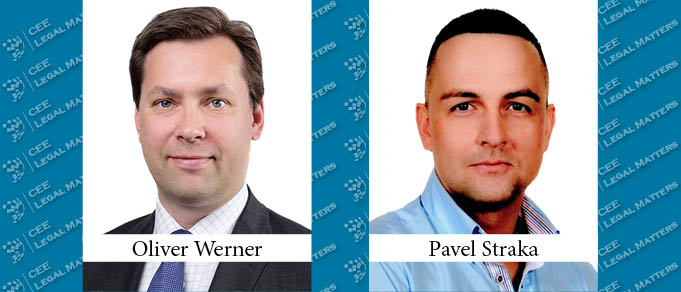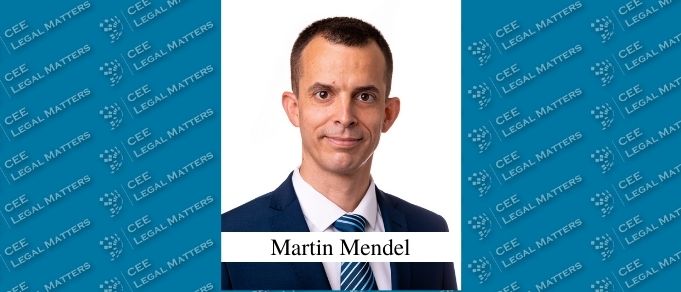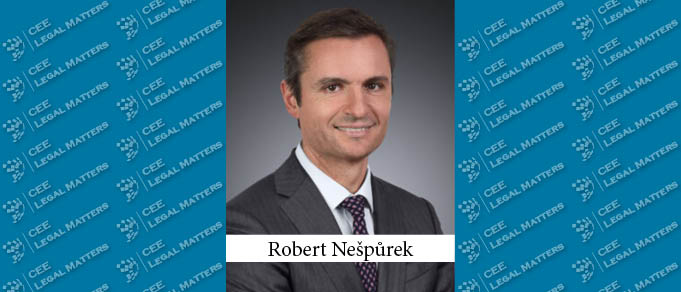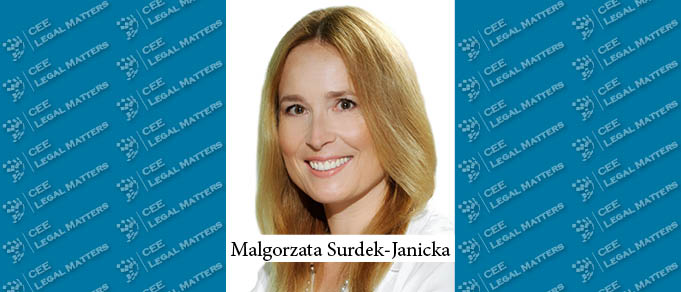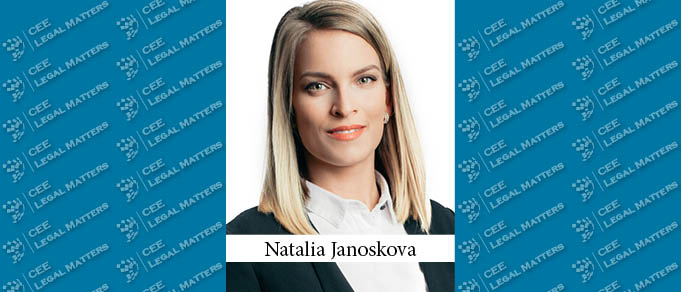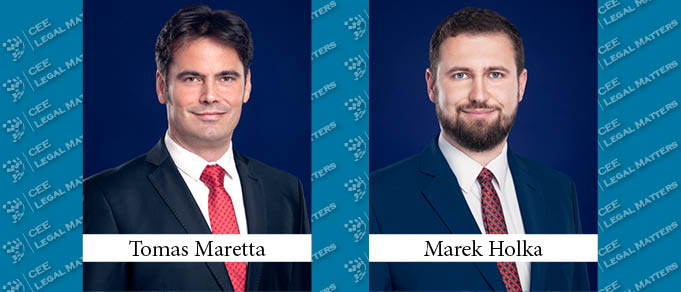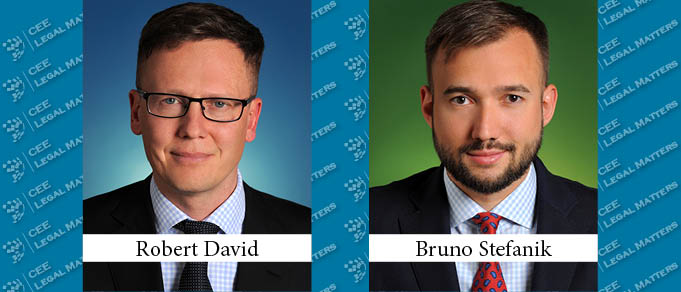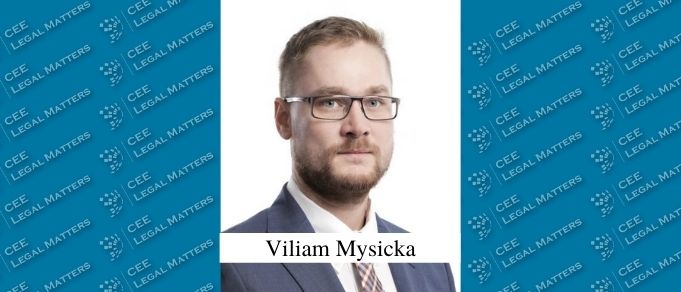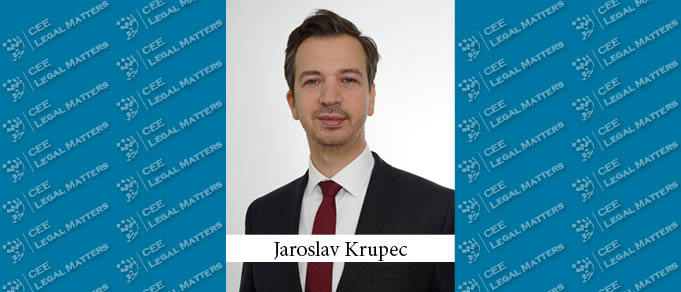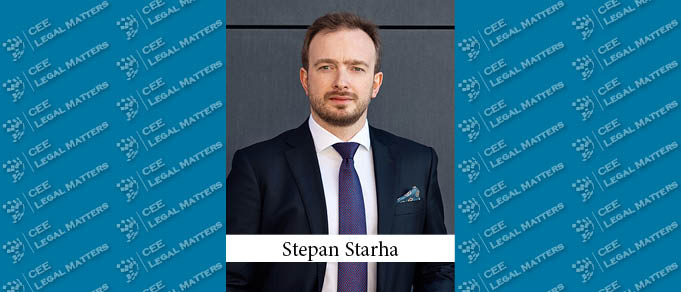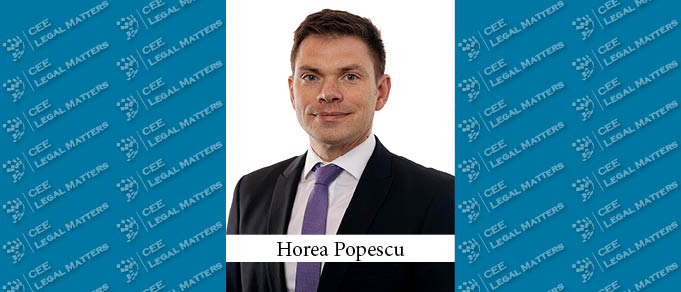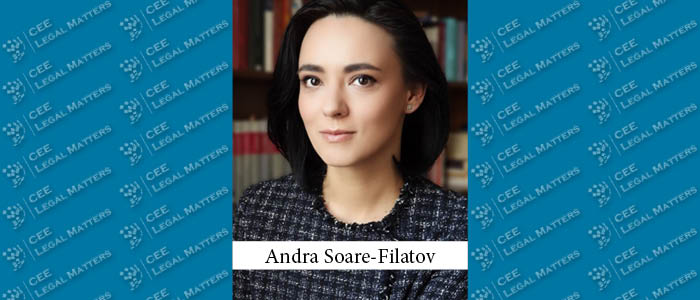The possibility of the employer to investigate whether its employees are vaccinated against COVID-19 was subject of heated debate in Slovakia. The prevailing view was the employer could not request such information from them as allegedly there was no legal basis for it in the Labour Code or other regulations. Surprisingly, such view was also supported by the Slovak National Inspectorate of Labour that claimed it should be up to the employees whether they inform the employer about their vaccination. There were also discussions whether obtaining such information by the employer complies with the GDPR.
Bernhard Hager Leads Eversheds Sutherland Czech and Slovak Offices. Radek Matous Makes Partner
Eversheds Sutherland's Head of the Bratislava Office Bernhard Hager has been appointed Managing Partner for the Czech Republic and Slovakia. Principal Associate and Head of the Labour Law team Radek Matous was promoted to Partner in Prague.
New Developments in Renewable Energy Legislation in Slovakia – Focus on Photovoltaics, Wind, and Hydrogen
The year 2021 has seen several major developments in the field of green energy in Slovakia.
Martin Mendel Appointed Co-Head of Dentons Real Estate Practice in Bratislava
Dentons Managing Counsel Martin Mendel has been appointed Co-Head of the firm’s Real Estate practice in Slovakia. He will lead the real estate team together with Partner Jiri Strzinek.
Whistleblowing – the Biggest Compliance News since the GDPR. Are You Ready for It?
With the implementation deadline for the EU Directive on the protection of persons who report breaches of Union law (17 December 2021) approaching, here is a summary of the current state of the respective national measures in the Czech Republic and Slovakia and an introduction to our own whistleblowing solution: FairWhistle.
MCL and Dentons Advise on Pavol Jakubec's Acquisition of 50% of I.D.C. Holding
MCL has advised Pavol Jakubec on the acquisition of the remaining 50% of shares in I.D.C. Holding from Kassay Invest. Dentons advised Slovenska Sporitelna on financing the deal.
ICC International Court of Arbitration Appoints Malgorzata Surdek-Janicka as Vice-President
CMS' Malgorzata Surdek-Janicka has been appointed as Vice-President of the International Court of Arbitration at the International Chamber of Commerce in Paris. Aside from Surdek-Janicka, 33 lawyers from CEE were appointed as members and alternate members of the court.
The Pontes Perspective on CEE
The COVID-19 crisis continues to plague much of Europe. To get an overview of its effects across CEE – both on investment in the region and on the legal industry itself – we reached out to the members of Pontes the CEE Lawyers legal alliance, a Regional Sponsor at the upcoming Dealer’s Choice International Law Firm Summit.
Slovakia: Deposit System for Disposable Beverage Packaging in Slovakia
As of January 1, 2022, a deposit system for disposable beverage packaging will be introduced in Slovakia. Some disposable beverage packaging manufacturers and distributors will therefore have new obligations.
The New Competition Act in Slovakia and Its Impact on Business
Only a handful of recent legislative initiatives have sparked as much interest in Slovakia’s business community as the draft of the country’s new Competition Act. What at first seemed to be a routine implementation of the EU ECN+ Directive resulted in a flood of comments and proposals. More than 350 suggestions from the public and various authorities were submitted after the original draft of the new Competition Act was published. Now the bill, having been approved by the cabinet, is entering deliberations in Parliament. The act, which will regulate the daily course of business of every entrepreneur under threat of exorbitant sanctions, certainly deserves a brief summary.
COVID-19 in Slovakia: New Moratorium Framework for Borrowers
On January 1, 2021, Act No. 421/2020 Coll. – the “2021 Moratorium Act” – took effect in Slovakia, introducing a protective framework for businesses affected by the ongoing COVID-19 pandemic and temporarily shielding them from a run on assets by creditors. The 2021 Moratorium Act replaced the temporary moratorium scheme introduced in May 2020, which had been in effect until that point.
Inside Out: E.ON Acquisition of Stake in VSE Holding
On September 22, 2020, CEE Legal Matters reported that Kinstellar’s Bratislava office had advised E.ON on its acquisition of a 49% stake in electric utility Vychodoslovenska Energetika Holding from the German electric utilities provider RWE. We reached out to Kinstellar Partner Viliam Mysicka for more information about the deal.
Inside Insight: Interview with Jaroslav Krupec, Country Legal Director at Veolia Slovakia
Interview with Jaroslav Krupec, Country Legal Director at Veolia Slovakia about his background and best practices.
Guest Editorial: Good Times Ahead in the Shadow of Social Changes and the Corona Crisis
Is it possible to perceive some elements of the corona crisis positively? And is it possible that changes could take place that would have a positive effect on the Slovak legal market? I may be too optimistic, but I am convinced that the answer to both questions is “yes.”
Meaning of M&A in CEE
Horea Popescu, Managing Partner of CMS Bucharest and Head of CMS’s Corporate M&A Practice in CEE Looks Back at an Unusual Year.
Slovakia: The Pitfall Named 59a – Still an Issue?
One could argue that transparency and safeguard regulations in related-party transactions of companies should be well established and should not be an issue in M&As in the current environment. However, this is not the case with Section 59a of the Slovak Commercial Code, which found its way into the Code via the implementation of the Second Council Directive 77/91/EEC.
Starting in Style: Interview with the Partners of the New NGL Symbio Alliance
Interview with the Partners of the New NGL Symbio Alliance.
Expat(s) on the Market: An Update
Over the course of our seven years, CEE Legal Matters has interviewed most of the British lawyers working on the ground in Central and Eastern Europe as part of our recurring “Expat on the Market” feature. We reached out to them recently and asked them to bring us up to speed on what they’re doing and/or share their thoughts on the ramifications of Brexit or the ongoing COVID-19 crisis.


